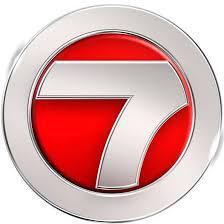- James Harrison, known as the “Man with the Golden Arm,” has died at 88. The Australian blood donor saved more than 2.4 million babies by donating plasma over 1,100 times.
- Harrison’s plasma contained a rare antibody, Anti-D, which prevents Rhesus disease in newborns.
- Harrison’s impact on medical science draws comparisons to Henrietta Lacks, whose cells were used for groundbreaking research.
Full Story
James Harrison, known as the “Man with the Golden Arm,” has died at 88. The Australian blood donor saved more than 2.4 million babies by donating plasma over 1,100 times.
According to the Australian Red Cross, Harrison’s journey as a donor began after undergoing major surgery at age 14. Doctors removed one of his lungs, and he required more than two gallons of donated blood to survive. Grateful for the lifesaving transfusions, he pledged to donate blood himself as soon as he became eligible.
At 18, he followed through on that promise. He continued donating every two weeks for more than six decades, retiring his arm at 81. His plasma contained a rare antibody, Anti-D, which became the key ingredient in a treatment to prevent Rhesus disease.
Rhesus disease occurs when a pregnant mother’s blood attacks her unborn baby’s blood cells, leading to severe, or sometimes fatal, health complications. Harrison’s unique blood helped develop the Anti-D injection, which has protected millions of newborns from the condition.
His contributions were so significant that he received the Medal of the Order of Australia. In 2003, he set a Guinness World Record for the most blood donated by a single person.
A legacy similar to Henrietta Lacks
Harrison’s impact on medical science draws comparisons to Henrietta Lacks. Lacks was an African American woman whose cancer cells — known as HeLa cells — became the first immortalized human cell line. Her cells fueled breakthroughs in everything from polio vaccines to cancer treatments.
Unlike Harrison, who voluntarily donated his blood, Lacks’ cells were taken without her consent. In 2023, her family settled a lawsuit with a biotech company over the unauthorized use of her genetic material.
Honoring Harrison’s legacy
Harrison passed away in his sleep on Feb. 17. His dedication to blood donation transformed maternal and infant healthcare in Australia and beyond.
Despite holding a world record for donations, NPR says Harrison always hoped someone would surpass him. His story shows how one person’s generosity can change millions of lives.














































